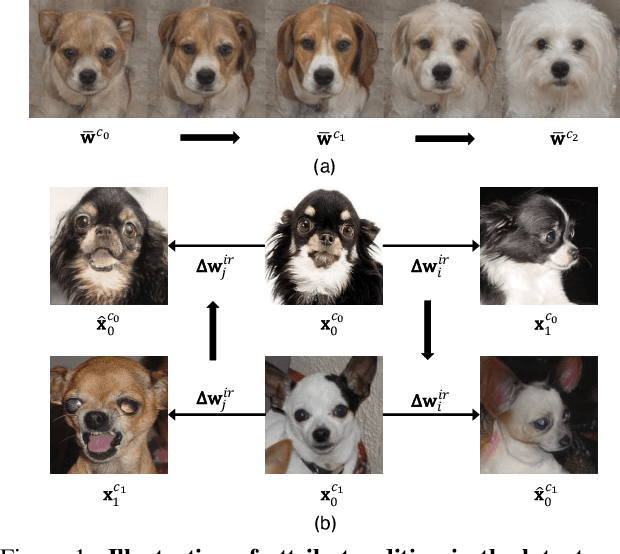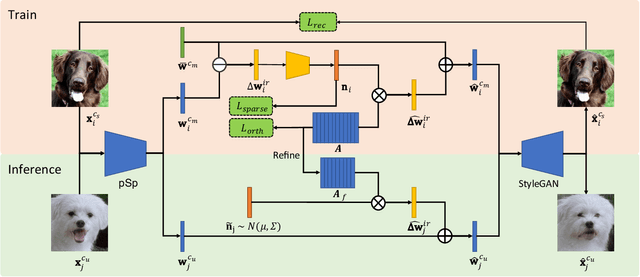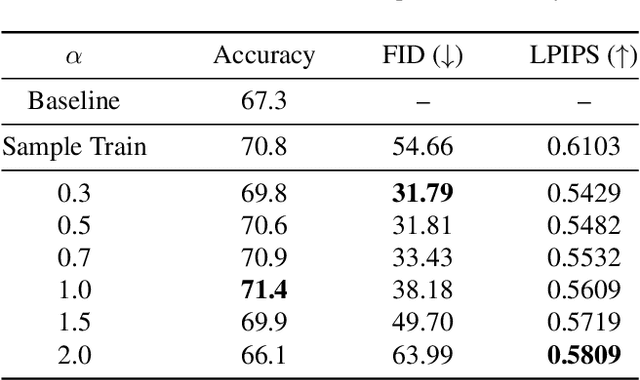Attribute Group Editing for Reliable Few-shot Image Generation
Paper and Code
Mar 16, 2022



Few-shot image generation is a challenging task even using the state-of-the-art Generative Adversarial Networks (GANs). Due to the unstable GAN training process and the limited training data, the generated images are often of low quality and low diversity. In this work, we propose a new editing-based method, i.e., Attribute Group Editing (AGE), for few-shot image generation. The basic assumption is that any image is a collection of attributes and the editing direction for a specific attribute is shared across all categories. AGE examines the internal representation learned in GANs and identifies semantically meaningful directions. Specifically, the class embedding, i.e., the mean vector of the latent codes from a specific category, is used to represent the category-relevant attributes, and the category-irrelevant attributes are learned globally by Sparse Dictionary Learning on the difference between the sample embedding and the class embedding. Given a GAN well trained on seen categories, diverse images of unseen categories can be synthesized through editing category-irrelevant attributes while keeping category-relevant attributes unchanged. Without re-training the GAN, AGE is capable of not only producing more realistic and diverse images for downstream visual applications with limited data but achieving controllable image editing with interpretable category-irrelevant directions.
 Add to Chrome
Add to Chrome Add to Firefox
Add to Firefox Add to Edge
Add to Edge